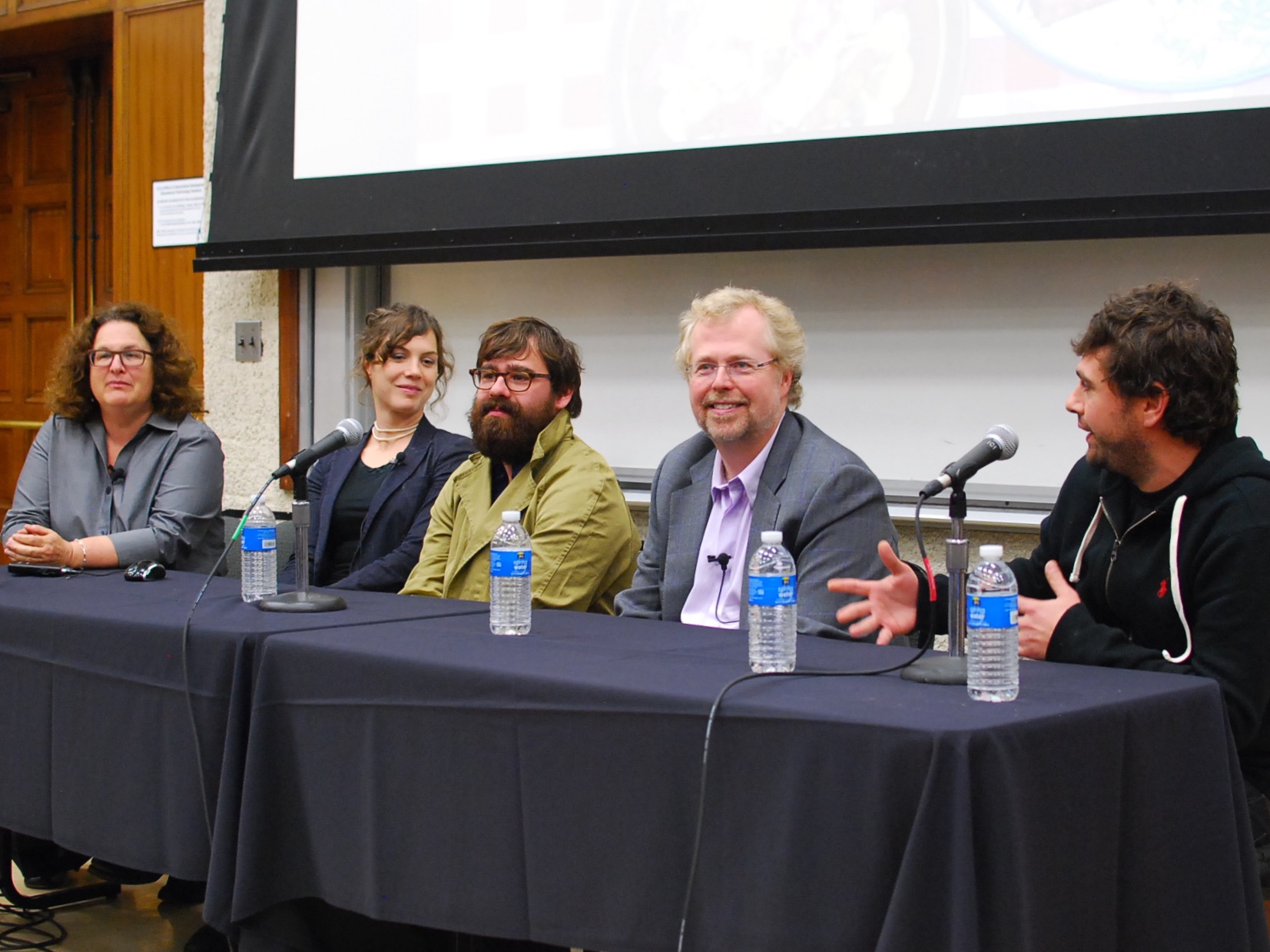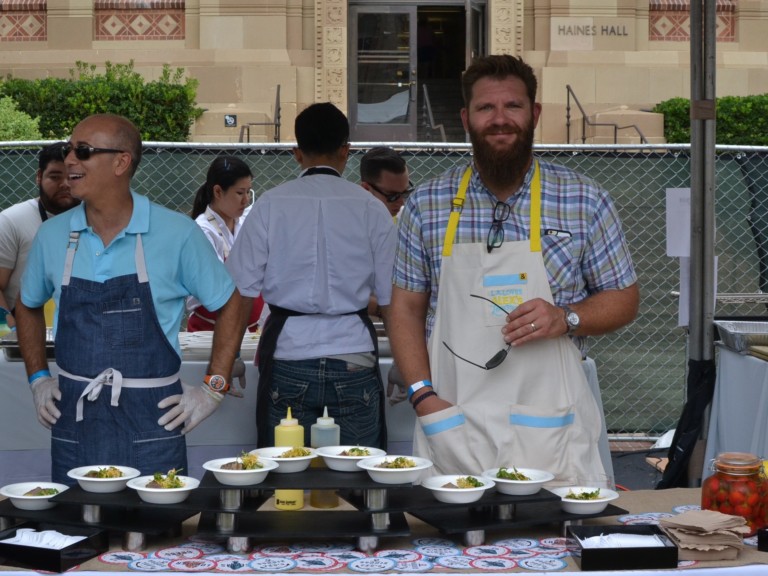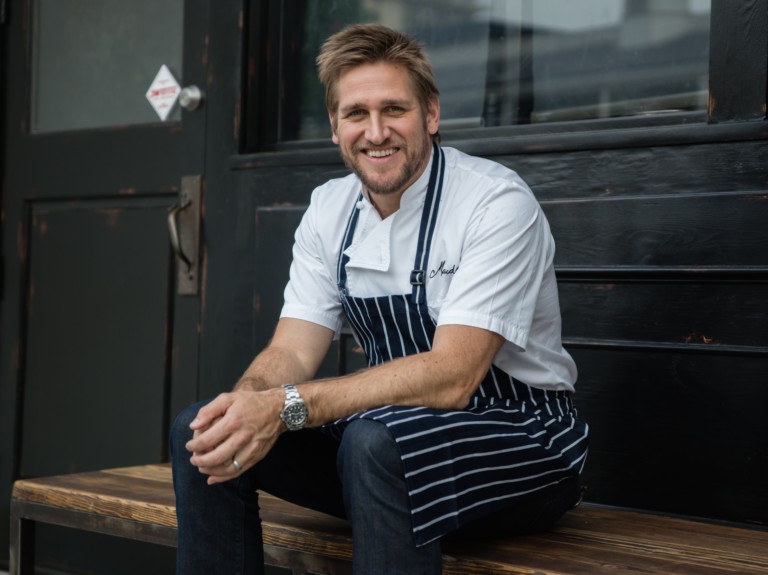STORY CONTINUED FROM PREVIOUS PAGE
9. Southern barbecue is famous for low and slow. Typically what that means is an air temperature of 190 degrees to 250 degrees, for a long time. A long time is six, six and a half hours for ribs, 12 hours for shoulder or brisket, and some people would double those numbers…We cook our ribs for 48 hours, brisket for 72. Our longest recipe in the book is oxtail, 100 hours. So you can’t come home and say, “Hey, honey, let’s have oxtail.” It’s a 100-hour thing.
10. In barbecue, really hardcore barbecue fanatics, one of these trappings of mythology is called the stall. What happens is you have a large piece of meat and you put it in a smoker and it heats up and the temperature’s rising. It stops rising. It stalls, and it stalls for hours…There are tons of theories. One theory about the reason the temperature stalls is you need energy to break down all that collagen. That’s a very clever theory, and it’s clever because you do need energy to break the meat, and to use scanning calorimeters, and it turns out you do need help to break collagen. It does take heat. There’s no way it should last for hours… Another theory is it’s because you’re forming the bark, which is some combination of the smoked meat and drippings from the fat and barbecue sauce or rub… It turns out it’s because the meat dries out…Wrap meat with foil and the humidity stays at 100%…An even more efficient way is to cook it sous vide first, because then you can smoke it.
11. What flavors the meat isn’t the smoke, per se. It’s a bunch of un-burned gases. In fact, you could do this without any visible smoke whatsoever.
12. The funny thing about smoking is it was originally a preservation technique. The reasons were two-fold. Smoke to dry things, and you can’t dry in the sun if there is no sun. If you were the Native-Americans near Seattle, where I live, good luck with those winter salmon. You’re not going to see the sun for four months, so what you’re going to do is build a fire with wood. Given there are preservatives, and there’s heat to dry stuff out, most of its preservative effect. Because we like the taste of it, we’ll do it for reasons that are completely different.
13. Most raw food reflects 90% of infrared light. That’s particularly true of fish, chicken or light colored things. It’s even true of beef. At first, it heats up very slowly. You’re trying to heat it up by shining light on it, but most light’s bouncing off. Only 10% hits it. As the food starts to absorb it, gets hotter and hotter. As it gets hotter, it starts to brown. When it’s brown, it absorbs more. By the time it’s dark, it absorbs 90%.
14. The key flavor element in grilling is that fat drips on the coals and flares up. That’s why grilling is different than broiling. Broiling is when your heat source is on top. There are people that think it’s all about the charcoal. “Oh, you need mesquite charcoal.” Charcoal doesn’t matter at all because it’s charcoal. When it’s wood, yes, it would matter, but by the time it becomes charcoal, you take all that stuff out. You’re left with carbon, so it really doesn’t matter what the wood used to be. Some of it will burn a little hotter than others, but there’s no flavor difference.
15. Vegetables don’t have any fat to drip. That’s also why a lot of grilling recipes suggest you marinate your zucchini in olive oil, so it will drip into the fire and catch fire. It turns out that if you squirt oil on to the fire, it works much better. Squirt and whoosh, it flares up…It’s these oil droplets and fat flare-ups that really make the flavor.
16. If you left the meat there long enough, if you didn’t flip it, the top part would never cook. The bottom would carbonize and turn to charcoal itself, but there’s so much water, that water will turn to steam and you’ll never get the top…The other way is to do something really thin.









Leave a Comment